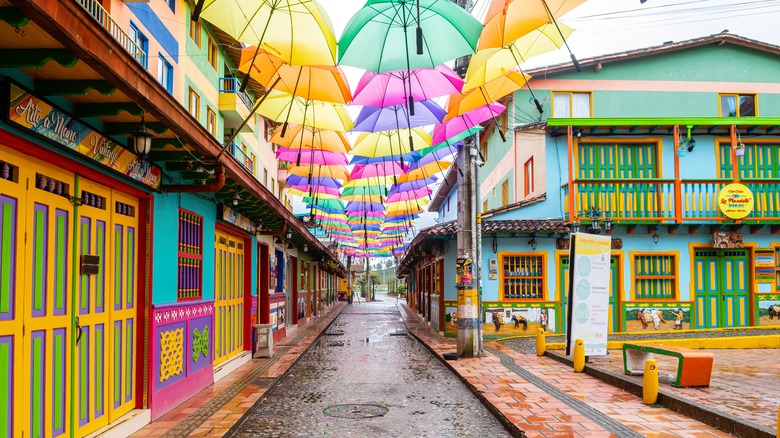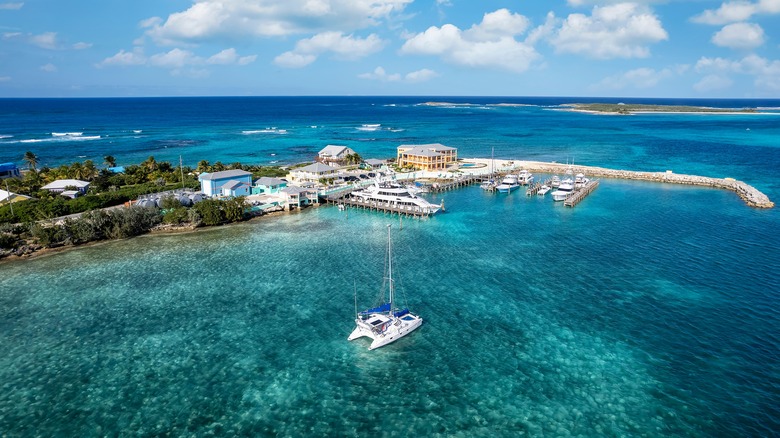For travel enthusiasts, the digital nomad lifestyle is a dream come true — conjuring romantic images of relaxing on a beach chair, typing away on a laptop, or attending a virtual meeting from a balcony overlooking cobblestoned city streets in a picturesque European village. According to a study by MBO Partners, the number of digital nomads increased by 131% between 2019 and 2022. 17.3 million people in the United States identified as digital nomads in 2023, based on Statista data, so it’s no wonder that countries worldwide have created special digital nomad visas to boost tourism. In 2024, digital nomads will be able to apply for visas in dozens of countries, each with unique requirements, allowing them to work and live abroad beyond the duration of traditional tourist visas. We’ve rounded up the best countries with digital nomad visas in 2024 based on the application process, qualifying requirements, and cost of living.
Costa Rica

Costa Rica is one of Central America’s most popular tourist destinations due to its beautiful natural scenery, ranging from pristine beaches to lush tropical rainforests. It offers the ultimate laid-back vacation experience and an incredible place to live and work remotely. The digital nomad visa in Costa Rica allows you to open a bank account, verify your driver’s license, remain in Costa Rica for up to a year, and renew the visa once for a second year. To qualify, you must make at least $3,000 monthly and provide proof of health insurance for your stay.
Greece

Beautiful beaches stretching along the sparkling Mediterranean Sea, mouth-watering food, plenty of cultural history, and budget-friendly living make Greece appealing to digital nomads. The digital nomad visa allows you to stay for up to a year, after which you can apply for a digital nomad residency for another two years. To qualify, you should make about $3,900 a month. You can bring family, but the monthly income requirement increases. You can apply by emailing your Greece Consulate Office. The visa costs $75 with a $150 processing fee for each family member.
Spain

Eloi_omella/Getty Images
Spain’s digital nomad visa was much anticipated and launched in January 2023. It makes an excellent home base for digital nomads, full of rich culture, lively cities, and charming small towns with affordable living costs. To obtain the visa, you’ll need proof of income of about $2,600 a month or more and you’ll need to provide proof of health insurance. The application fee costs about $80, and you can apply at a Spanish Consulate or in Spain during your 90-day tourist visa.
Croatia

Benny Marty/Shutterstock
When you base yourself in Croatia, you’ll be able to explore coastlines, picturesque cities, and beautiful lakes. With an affordable cost of living compared to most of Europe, it’s an ideal spot for digital nomads. To be approved for the digital nomad visa, you must have a monthly income of about $2,800, a clean criminal record, proof of health insurance, and an address of where you plan to stay. You can apply for the visa online for about $50. The visa allows close family members, including partners who have been together for at least three years, to join you during your stay.
Colombia

Jon Chica/Shutterstock
Colombia has historic cities and underrated national parks and offers a digital nomad visa with one of the lowest monthly income requirements. You can apply for the visa if you make at least $684 monthly. Colombia is an affordable destination with plenty to do, making it a great budget-friendly home base in South America. You can stay for two years once the visa is approved, and you can include spouses and children on your application. You must provide proof of income, employment, and health insurance to qualify. Apply for the visa online for an application fee of $177.
Portugal

DaLiu/Shutterstock
Over the past several years, Portugal has become a hub for digital nomads hoping to explore Europe and enjoy a Mediterranean lifestyle. The cost of living in Portugal is significantly lower than in the United States, which helps to make it an appealing home base abroad. The digital nomad visa in Portugal allows you to stay in the country for one year, with the opportunity to extend once that year is up. You’ll need to earn about $3,355 per month and arrange your accommodations in advance.
Malta

fokke baarssen/Shutterstock
Malta is an underrated island nation between Sicily and North Africa in the Mediterranean Sea. It’s known for historic sites like megalithic ruins and fortresses, dramatic landscapes, and affordable rent. You can find one-bedroom apartments in the city center for about $900 per month. Nationwide 5G signal and excellent public WiFi are added perks for remote workers. The digital nomad visa requires a yearly income of about $36,000, health insurance, and a background check. Once approved, you and your family can stay in Malta for up to one year.
The Bahamas

Sven Hansche/Shutterstock
The Bahamas is a tropical paradise that’s less than an hour flight from Miami International Airport. English is the official language, which makes it easy for remote workers to get accustomed. The digital nomad visa, called BEATS, is one of the easiest to obtain, and approval takes less than five days. Once approved, you can live in The Bahamas for up to one year. The application fee is $25, and you’ll need to pay $1,000 plus $500 for each dependent traveling with you, but there is no minimum income requirement.
Countries to keep an eye on in 2024

Sanga Park/Shutterstock
As the popularity of the digital nomad lifestyle continues to rise, expect to see more countries rolling out their version of the digital nomad visa. Several countries, including South Korea and South Africa, have already teased new visas for remote workers and have legislation in the works. The South Korean visa will likely be available toward the latter half of 2024, although specific requirements have not been announced.
Methodology

Sestovic/Getty Images
To select our top countries with digital nomad visas in 2024, we looked at a variety of factors, including minimum monthly income requirements, cost of living, and ease of application. We excluded countries without a digital nomad visa that allows remote workers to stay for at least one year and any countries with a monthly income requirement of more than $5,000.

